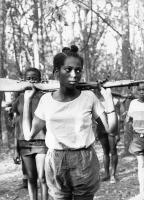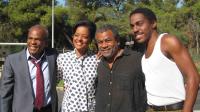angolan cinema
Articles tagged with angolan cinema
Tag Archive
- 1:54
- África
- african hair
- Ana Clara Guerra Marques
- annett stenzel
- António Alonso
- architecture
- archive
- artists
- atafona
- Ateler Mutanba
- Atlas da Solidão
- Ayres de Magalhães
- beer
- Bienal de Coimbra
- black
- black history
- Câmara Municipal de Lisboa
- Carlos Paca
- ccd
- chilhood memories
- ChoraRita
- Circulations
- Complô
- congoísmos
- cultural memory
- culturas afrobrasileiras
- culture
- Danças africanas
- democracy
- drawings
- Earth
- economia
- Edson Chagas
- eleições
- emigrants
- environmental sustainability
- gente de cor
- Gérard Quenum
- Germano de Almeida
- glotophobia
- Hannah Arendt
- Harare
- história
- historicism
- in transit
- Índios
- Ingrid Mwangi
- intelectualidade brasileira
- international relations
- jazz
- Jimmie Durham
- João de Deus Lopes da Silva
- journey
- jungle
- kriolu
- Leila Kilani
- Lisbon
- Lost lover
- Lula
- lusitanismo
- Lusosphere
- lusotropicalism
- lyubov matyunina
- Mais um Dia de Vida: Angola 1975
- Margaret stevens
- Margarida Cardoso
- marxism
- memória
- microeconomics
- Museu afro-brasileiro
- paintings
- paraíso
- PCP
- Pedro Coquenão
- pos-colonial
- postcolonialism
- queer
- representation
- Resgate
- resources
- restitution
- restitution of art
- rijksmuseum
- rural
- Sado
- Sao Tomé e Príncipe
- Self-ownership
- settlers
- Spain
- stereotypical images
- study of memory
- sun
- tanzania
- the end
- todassabemos
- transmission
- tunisia
- Vital Matter
- Yvone Kane
 No history of decolonization or of decolonizing praxes is ever completed without attention to gender. How did women view the liberation struggles in the former Portuguese colonies? How were their ways of seeing integrated or not in the imagination of colonialism? Was there a specific gaze to women over the liberation struggles? What knowledge and awareness do we have of/about these ways of seeing? And how do these ways of seeing intersect with those of contemporary filmmakers, artists, curators and academics who are now questioning public and private archives, are visually recreating their memories or re-imagining colonialism? What role academic research, archive conservation policies, programming and curatorship have in questioning or prolonging (official) “politics of memory”?
No history of decolonization or of decolonizing praxes is ever completed without attention to gender. How did women view the liberation struggles in the former Portuguese colonies? How were their ways of seeing integrated or not in the imagination of colonialism? Was there a specific gaze to women over the liberation struggles? What knowledge and awareness do we have of/about these ways of seeing? And how do these ways of seeing intersect with those of contemporary filmmakers, artists, curators and academics who are now questioning public and private archives, are visually recreating their memories or re-imagining colonialism? What role academic research, archive conservation policies, programming and curatorship have in questioning or prolonging (official) “politics of memory”?  Our interview takes place in Ipanema, Rio de Janeiro, where Zézé Gamboa and a few members of his team are resting for a few days after the intense shoot for his film “Grande Kilapy”, which tells the story of Joãozinho das Garotas, an Angolan during colonial times who engineered a sting with the colony’s finances. There’s just a week in Luanda left for the film to be ready for editing, following the takes in Portugal and Paraíba in Brazil, so this is the right time to weigh up the experience and bring to public attention some aspects of the work done by someone who is considered to be “the most consistent” of Angolan directors.
Our interview takes place in Ipanema, Rio de Janeiro, where Zézé Gamboa and a few members of his team are resting for a few days after the intense shoot for his film “Grande Kilapy”, which tells the story of Joãozinho das Garotas, an Angolan during colonial times who engineered a sting with the colony’s finances. There’s just a week in Luanda left for the film to be ready for editing, following the takes in Portugal and Paraíba in Brazil, so this is the right time to weigh up the experience and bring to public attention some aspects of the work done by someone who is considered to be “the most consistent” of Angolan directors. 